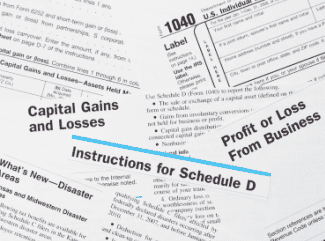Timing The Market: Refi or Keep ARM Loan?
by Benny L. Kass, Inman News
 DEAR BENNY: I have a hybrid mortgage that is fixed for the first five years at 4.25 percent, and is tied to U.S. Treasury securities. The loan document notes that the index value is 2.1 and the margin is 2.75. The first “change date” on the loan is Nov. 1, 2009. My loan documents say on the first change date, my interest rate could be as high as 9.25 percent or as low as 2.75 percent, with no more than a 2 percent increase in any given year thereafter.
DEAR BENNY: I have a hybrid mortgage that is fixed for the first five years at 4.25 percent, and is tied to U.S. Treasury securities. The loan document notes that the index value is 2.1 and the margin is 2.75. The first “change date” on the loan is Nov. 1, 2009. My loan documents say on the first change date, my interest rate could be as high as 9.25 percent or as low as 2.75 percent, with no more than a 2 percent increase in any given year thereafter.
Given the current fixed interest rates, is it advisable for me to refinance the loan now or continue to take advantage of the low rate I am paying for another year? What is the likelihood that the “index” could reach 6.5 percent in a year, raising my interest rate to 9.25 percent at the end of 2009? I would appreciate your response. –Belmont
DEAR BELMONT: My crystal ball (actually two of them) broke about a year ago. Your guess as to where the market will go tomorrow — let alone a year from now — is probably as good as mine.
First, I urge you to confirm what the maximum rate can be at the first adjustment period in November of 2009. Talk to your lender or to an attorney to make sure that your first anniversary rate can go as high as 9.25. From my experience, most adjustable rates provide a cap — usually 2 percent per year — on any adjustments. Of course, different lenders have different programs, and yours may actually allow the rate to jump that high.
Second, you have to determine what index is being used? Is it LIBOR (London Interbank Offered Rate)? Is it based on a U.S. Treasury security? Or is it based on the 11th District COFI (cost of funds index)? There are significant differences. For example, at the end of August 2008, the one-year Treasury index was 2.18 percent while the 10-year Treasury index was almost 3.9 percent.
You have a good rate now, and mortgage interest rates are still quite low. I would do some homework, making sure you fully understand the terms and conditions of your ARM. Then I would discuss your situation with your current lender. They may be happy to get rid of a low mortgage on their books and may be willing to negotiate a deal for you now — i.e. something that is above what you are currently paying but clearly below 9.25.
And here’s another suggestion: If you have the money, I would start making extra payments on a monthly basis to bring your outstanding balance down. If you can make one additional month’s payment each year, you can reduce a 30-year amortized loan down to about 22 years. It makes sense to reduce your loan balance now, especially since you have such a low interest rate
Benny L. Kass is a practicing attorney in Washington, D.C., and Maryland. No legal relationship is created by this column. Questions for this column can be submitted to [email protected]. What’s your opinion? Leave your comments below or send a letter to the editor. To contact the writer, click the byline at the top of the story.
Copyright 2008 Benny L. Kass
See more from Benny Kass, Three Ways to Reduce Capital Gains Tax.
American Apartment Owners Association offers discounts on products and services related to your commercial housing investment, including real estate forms, tenant debt collection, tenant background checks, insurance and financing. Find out more atwww.joinaaoa.org.
To subscribe to our blog, click here.















 Accessibility
Accessibility